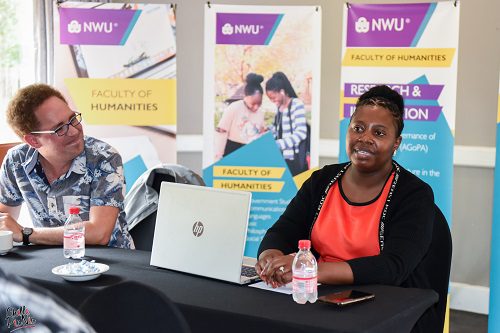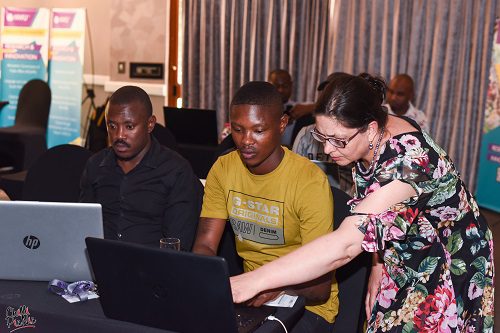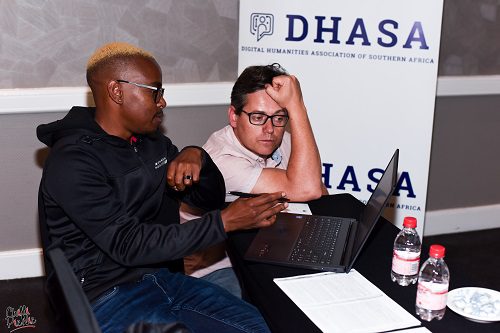Three of the South African Centre for Digital Language Resources (SADiLaR) researchers (Ms Mmasibidi Setaka, Mr Benito Trollip, and Prof Menno van Zaanen) recently taught courses at a summer school which was organized by the Digital Humanities Association of Southern Africa (DHASA). This 3-day event, which ran from 31 October to 3 November 2022, provided a range of courses covering topics related to Digital Humanities. This summer school was specifically targeted to students and researchers with an interest in the field of Digital Humanities.
Professor Menno van Zaanen and Franziska Pannach, both executive committee members of DHASA, were instrumental in organising the summer school, which was held in collocation with a Digital Humanities conference organized by North-West University. These events took place in-person at the Riverside Sun Hotel in Vanderbijlpark, South Africa.
Digital Humanities is an academic research field that deals with the application of computational tools and digital methods within the traditional fields of Humanities, such as linguistics, literature, music, history, philosophy, etc. By organizing events such as the summer school, SADiLaR and DHASA aim to boost the field of Digital Humanities in South Africa, which is currently still very novel. In addition to training events, SADiLaR builds a community of practice that allows researchers to share information and discuss problems, solutions, and possibilities.
Advances in technology as well as the availability of Humanities data have led to the development of the field of Digital Humanities, which concentrates on generating and answering new questions relevant to the field of Humanities. Research in this field blends Humanities and digital techniques and as such is driven by novel and fast-evolving digital technologies. Digital Humanities crosses the boundaries between Humanities and Computing. This leads to inter- and cross-disciplinary collaboration between scientists, bringing together plurality of methodologies, critical and reflexive approaches, and the disruption of traditional practices of doing scientific research.
“The DHASA summer school was a great initiative to introduce different scholars to the field of Digital Humanities which is a new field of study in South Africa. Participants were interested in the possibilities that Digital Humanities has to offer, and I believe this should be an ongoing discussion,’ recommended Humanities Researcher at SADiLaR, Ms Mmasibidi Setaka.
Caption: Attendees and presenters at the Digital Humanities Summer School





